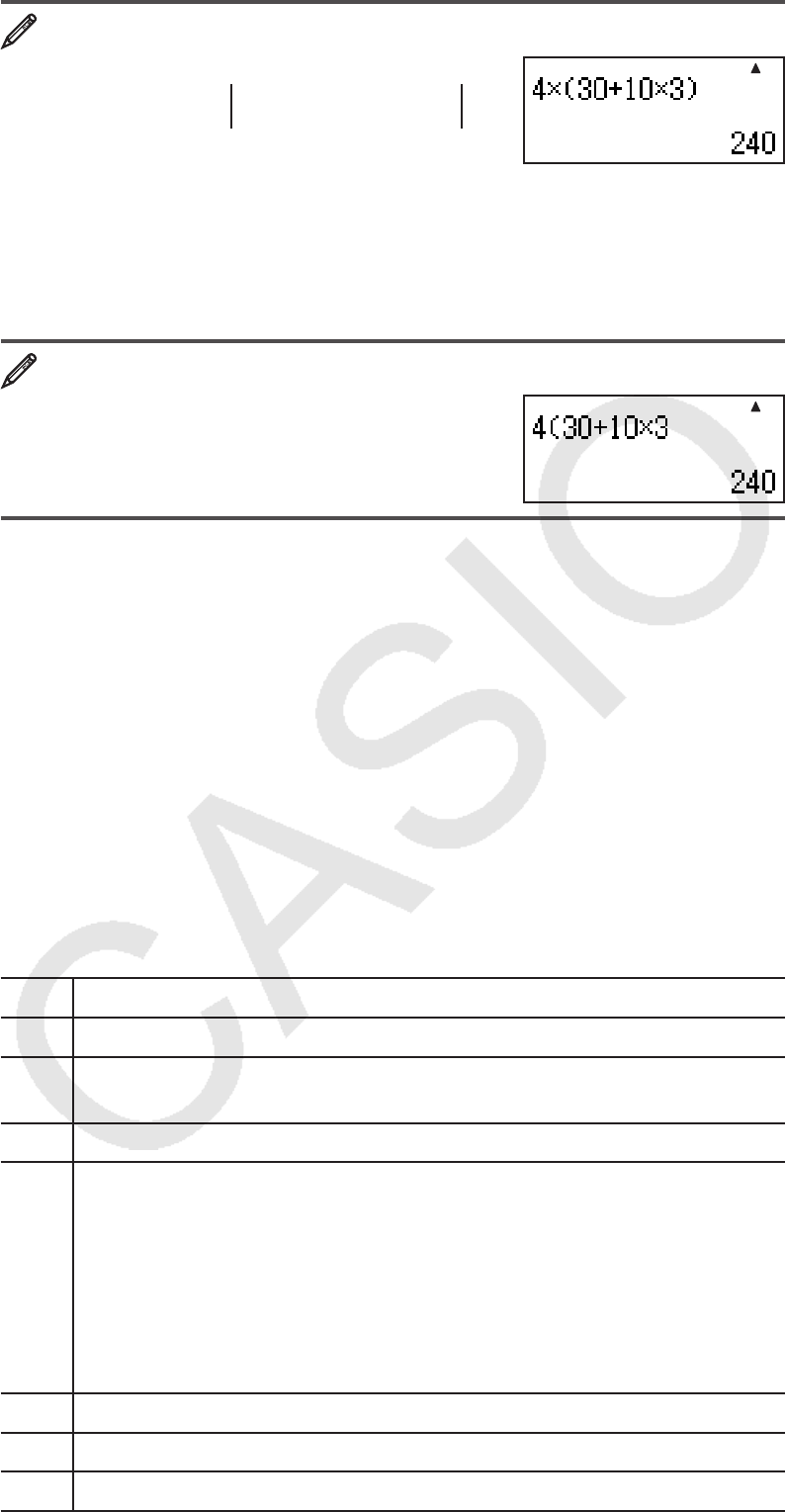
E-6
4 × (30 + 10 × 3) = 240
4 *( 30 + 10 * 3 )=
*
1
*
2
*
1
A multiplication symbol (×) can be omitted when it occurs immediately
before an opening parenthesis, immediately before Rnd or RanInt# function
that includes parentheses, immediately before the Ran# (random number)
function, or immediately before independent memory (M) or π.
*
2
The closing parenthesis immediately before the = operation can be
omitted.
Input example omitting **
1
and )*
2
operations in the above
example.
4 ( 30 + 10 * 3 =
Note: • If the calculation becomes longer than the screen width during
input, the screen will scroll automatically to the right and the ] indicator will
appear on the display. When this happens, you can scroll back to the left
by using d and e to move the cursor. • Pressing e while the cursor
is at the end of the input calculation will cause it to jump to the beginning,
while pressing d while the cursor is at the beginning will cause it to jump
to the end. • You can input up to 99 bytes for a calculation. Each numeral,
symbol, or function normally uses one byte. Some functions require three
to 13 bytes. • The cursor will change shape to k when there are 10 bytes
or less of allowed input remaining. If this happens, end calculation input
and then press =.
Calculation Priority Sequence
The priority sequence of input calculations is evaluated in accordance with the
rules below. When the priority of two expressions is the same, the calculation
is performed from left to right.
1st
Parenthetical expressions
2nd
Function with parentheses: Rnd(, RanInt#(
3rd
Functions that come after the input value (
x
2
, x
–1
, °’ ”, %), powers
(
x^), square root ())
4th
Fractions
5th
Negative sign (–)
Note: When squaring a negative value (such as –2), the value
being squared must be enclosed in parentheses ((- 2 )w
=). Since
x
2
has a higher priority than the negative sign,
inputting - 2 w= would result in the squaring of 2 and then
appending a negative sign to the result. Always keep the priority
sequence in mind, and enclose negative values in parentheses
when required.
6th Multiplication where the multiplication sign is omitted
7th
Multiplication (×), division (÷), remainder calculations (÷R)
8th Addition, subtraction (+, –)
MathMath
MathMath


















